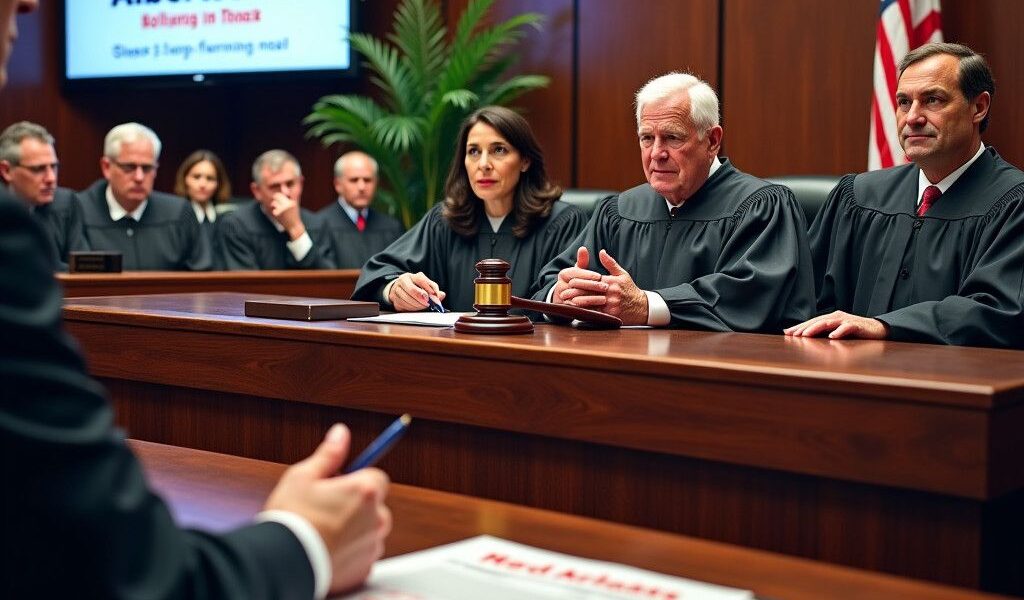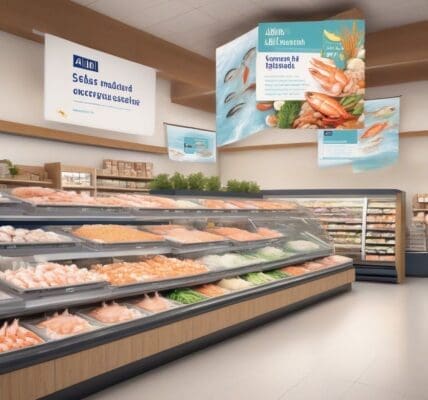In a significant development for the grocery industry, a U.S. District Court has granted a preliminary injunction against the proposed $24.6 billion merger of Kroger Co. and Albertsons Cos., marking a major victory for the Federal Trade Commission (FTC). Judge Adrienne Nelson ruled in favor of the FTC’s plea for “extraordinary relief” to halt the merger, suggesting potential long-term negative consequences for consumers and the competitive landscape.
The three-week trial, which concluded recently in Portland, featured testimony from over 30 witnesses. These individuals presented ample evidence concerning the current state of the U.S. grocery market and the implications of a merger on the prices and availability of products. One focal point of the trial was the companies’ proposed divestiture plan, which involved selling 579 stores to C&S Wholesale Grocers. Judge Nelson, however, expressed skepticism regarding the adequacy of this move in preserving market competition.
In her ruling, Nelson pointed out that the divestiture plan was counterproductive. She stated, “There is ample evidence that the divestiture is not sufficient in scale to adequately compete with the merged firm and is structured in a way that will significantly disadvantage C&S as a competitor.” Historical data underlines her concerns; in previous acquisitions involving C&S, there were instances of acquired stores subsequently losing sales or shutting down.
Moreover, the Judge rejected arguments posed by Kroger and Albertsons that suggested they needed to merge to better compete with larger rivals like Walmart, Amazon, and Costco. She stated, “The overarching goals of antitrust law are not met, however, by permitting an otherwise unlawful merger in order to permit firms to compete with an industry giant.” This underscores the role of antitrust laws in maintaining market fairness, suggesting that allowing such mergers could hinder competition rather than enhance it.
The ramifications of this ruling extend beyond just regulatory concerns. The attempt to merge came in the wake of rising grocery prices, a situation that is affecting consumers throughout the country. Washington State Attorney General Bob Ferguson, who filed a separate lawsuit on January 15 to block the merger, highlighted fears that the deal would severely limit shopping options and escalate prices for residents in the state. Drawing upon lessons from the past, he noted the detrimental effects of Albertsons’ acquisition of Safeway, which subsequently led to market concentration and bakery chain Haggen’s bankruptcy.
Kroger maintains that the merger would lead to job creation and improved efficiencies, claiming it would allow them to offer competitive prices by harnessing cost synergies. However, critics, including state attorneys general, believe that these claims do not justify the competitive harms that would likely result. The pending decision from the Seattle courtroom on this matter will serve as a pivotal moment not just for Kroger and Albertsons but for grocery consumers nationwide.
Additionally, it is notable that a third merger review case concerning this matter has emerged in Colorado, initiated by Attorney General Phil Weiser. Filed earlier in 2024, the lawsuit reported concerns that the merger would effectively eliminate direct competition between Kroger and Albertsons, resulting in a further consolidation of an already concentrated market.
Kroger, headquartered in Cincinnati, currently serves over 11 million customers daily. It boasts a significant workforce of around 420,000 associates and ranks as the fourth largest food retailer in North America, according to Progressive Grocer’s annual list. In contrast, Albertsons, based in Boise, Idaho, operates over 2,269 retail outlets and ranks ninth on the same list. Despite their size and market presence, both companies now face a challenging path ahead without the merger.
The unfolding events around the Kroger and Albertsons merger illustrate the complex dynamics of competitive retail landscapes, particularly in the grocery sector, where consumer welfare must be balanced against corporate consolidation. As regulatory scrutiny continues, the outcome will be critical in defining the future of grocery retailing in the United States, impacting both competitors and consumers alike.












